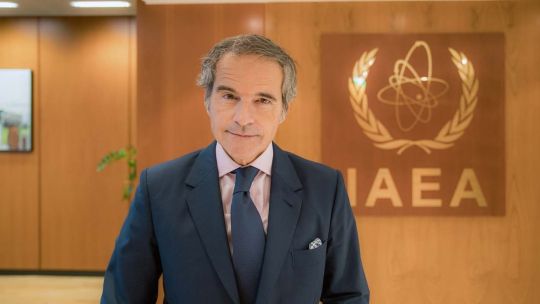
The United Nations stands at an inflection point. The international system is under strain, fractured by war, inequality and eroding trust. Yet, 80 years after its founding, no-one has abandoned their belief in the mission of the United Nations. Despite profound divisions, Member States and people around the world continue to turn to this organisation because they know what it represents: peace through cooperation; dignity through dialogue; and solutions through solidarity and collective responsibility.
The United Nations’ relevance endures, but its effectiveness must be renewed. Building on the current UN80 initiative, an honest and courageous approach is urgently needed to create an organisation that is both relevant and impactful. The world does not need more declarations. It needs a United Nations capable of responding to the real demands of our time with impartiality and a results-oriented approach grounded in facts.
More than 40 years of service in diplomacy, and my current experience as Director General of the International Atomic Energy Agency, have shown me that this is possible. For the past six years, I have led a global organisation that operates at the intersection of international peace and security, energy, science and development. I have mediated in moments of international crisis and delivered tangible support where it is needed most. These experiences have confirmed a conviction I hold deeply: even in times of division, multilateral institutions can deliver real, positive impact – provided they remain accountable, focused, credible and deeply committed to engaging those they serve.
The United Nations requires the same focused and credible approach. It must safeguard its founding values while responding to the world as it is. With this in mind, I propose five interlinked priorities:
1. Effective action for peace and security
The United Nations must return to its founding promise: to save humanity from the scourge of war. International peace and security remain the first pillar of our shared architecture – the essential condition upon which our coexistence is built and human dignity can be fully realised.
The United Nations must reclaim this central mission, not through rhetoric but through early and credible engagement. In an increasingly complex world, this means being active, not passive, in the face of conflict and humanitarian crises. It requires moving from platitudes to active diplomacy and the deployment of impartial expertise. Credible decisions must be informed by timely, evidence-based assessments and clear communication.
The Secretary-General has the responsibility to work closely with the Security Council and to maintain sustained dialogue with all Member States, particularly those at opposite ends of conflict. In a divided world, this role must be exercised with clarity and care, and with enlightened and prudent optimism. It must be guided by the Charter and by the goal of peace through cooperation.
2. Development through realistic solutions and collaborative partnerships
Peace and security are crucial enablers of development. They create the conditions for economic growth, innovation and investment, while sustaining human dignity and making effective humanitarian action possible.
The 2030 Agenda and the Sustainable Development Goals provide a framework, a set of priorities and a global point of reference for problems that require solutions. Yet with only 18 percent of targets currently on track, the SDGs remain unfulfilled aspirations. This must prompt reflection: are we still on the right course of action? Will doing more of the same deliver different results?
A grounded, sectoral approach is needed. It must focus on achievable outcomes, measurable progress and practical coordination. This includes building more constructive partnerships with civil society, the private sector and the scientific community. Blanket condemnations and polarising rhetoric only widen divides, alienate indispensable stakeholders and weaken implementation.
At the same time, the United Nations must strengthen its engagement with international financial institutions, whose goals and missions are complementary and mutually reinforcing. Working together through enhanced dialogue and coherent priorities is essential to supporting development.
Development cooperation must deliver tangible benefits – including access to healthcare, food, water and energy security, a healthy environment, education and real opportunities for a better quality of life, especially in countries facing the greatest challenges. Words must lead to action, and action to impact.
3. Human rights and human dignity as cornerstones of peace
The pursuit of peace and security is inseparable from the defence of human dignity. The foundational instruments of human rights – including the Universal Declaration and the core international treaties – remain as relevant today as when they were first adopted. They are not outdated ideals, but essential guides for responsible and peaceful global engagement.
The United Nations must reaffirm its commitment to human rights through more than declarations. It must do so through its presence on the ground and through mechanisms that enable more effective responses to discrimination and violence; through a renewed focus on women’s rights and youth participation; and through the defence of civic space in all regions.
Firmly anchored in the UN Charter, human rights must be integrated into broader efforts for peace and development while remaining responsive to contemporary realities. Upholding human dignity is not an abstraction. It is the foundation of lasting peace.
Human rights are particularly vulnerable in moments of crisis and conflict, when respect for international law – including humanitarian law – becomes essential. In such contexts, the United Nations has a central role to play, working in a coordinated manner to provide neutral, impartial and independent assistance to Member States.
4. Modern management and institutional renewal
A stronger United Nations requires reform guided by clear purpose. Over the years, the organisation has accumulated overlapping mandates and fragmented functions, limiting its ability to respond effectively to global challenges. Reform is necessary – but not for its own sake. Too often, reform efforts become trapped in self-serving bureaucratic cycles. The United Nations and its reforms must serve humanity, not the deliberative machinery itself. The UN80 initiative is an indispensable starting point, to be followed by a broader rightsizing process that aligns mission and resources according to priorities agreed by Member States.
Purposeful, performance-driven renewal is needed. We must improve coordination, eliminate duplication, digitise operations and align structures with clearly defined goals. Efficiency must serve a purpose, not merely satisfy a process.
Institutional renewal requires trust and a shared understanding between Member States and the Secretariat. It also requires determination from the Secretary-General to lead with urgency and ensure effective coordination across the UN system. To succeed, reform processes must also engage staff at all levels in meaningful ways.
Institutions perform best when they draw on society’s full talent pool. Equal opportunities for men and women are not a matter of image or political correctness. When implemented correctly, they lead to better outcomes and must therefore be a defining feature of a modern United Nations.
5. Principled, pragmatic multilateralism
By strengthening its commitment to its founding vision, the United Nations can better respond to today’s realities. In times of fragmentation and insecurity, impartiality and effective dialogue are essential. The Secretary-General must engage with all sides, speak with clarity and act with purpose – particularly in moments of disagreement. Real leadership does not retreat from complexity; it rises to meet it. Effective leaders listen carefully, act decisively and deliver tangible results.
Eighty years after its founding, the United Nations must renew itself – and its Secretary-General must embody that renewal. The challenges are great, but the mission endures: to prevent war, to protect people and to promote the dignity of all. I am ready to lead this next chapter with conviction, with realism and with an unshakeable belief in the value of principled, pragmatic multilateralism. The world still needs the United Nations – but it must be a United Nations that works.
related news
by Rafael Mariano Grossi





